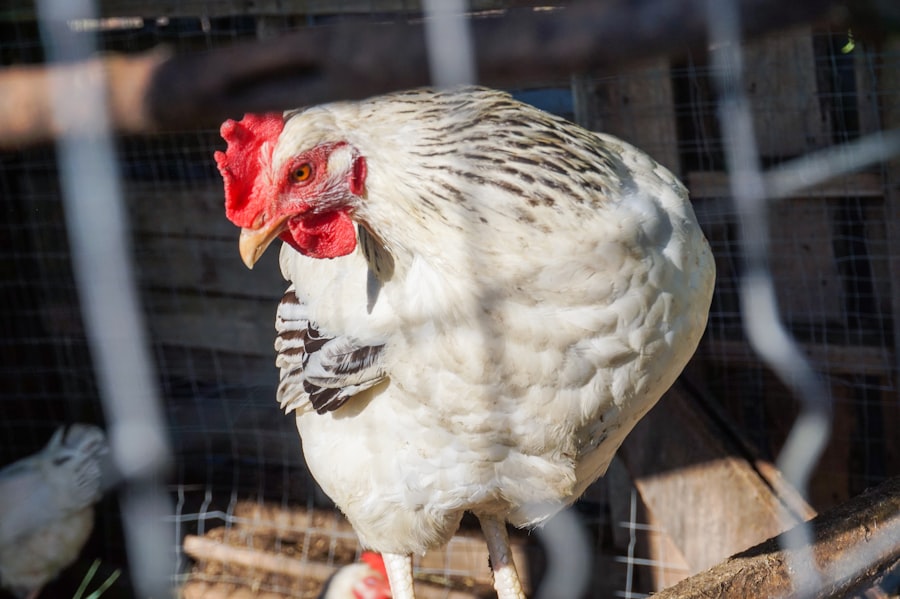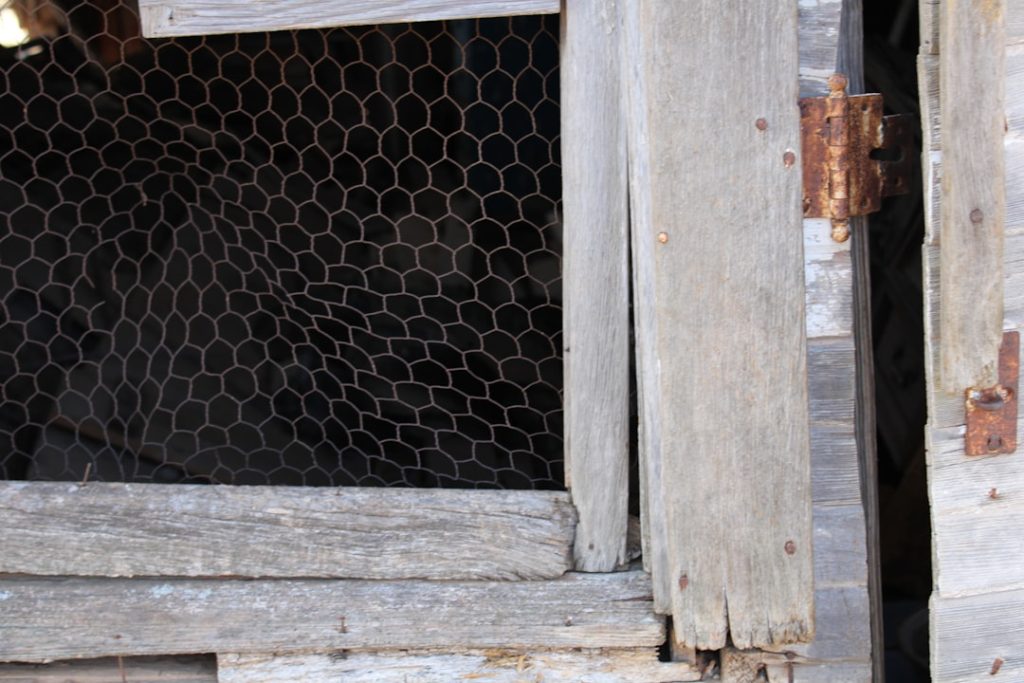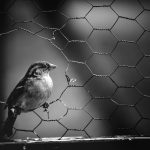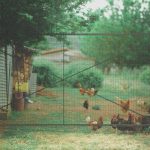Chickens exhibit natural curiosity and inquisitiveness, often investigating objects in their environment through pecking. They are particularly attracted to bright colors and interesting textures, which can make flowers in gardens or yards appealing to them. Chickens also possess a strong foraging instinct, potentially viewing flowers as a food source.
Comprehending these innate behaviors is essential for developing effective strategies to protect flowers from chicken-related damage. As social creatures, chickens tend to gather in groups. When one chicken discovers an attractive area, such as a flower bed with edible plants, others are likely to follow.
This behavior can result in extensive damage to flowers if not addressed promptly. Understanding the social dynamics of chickens allows for better anticipation and prevention of potential flower destruction. Ultimately, a thorough knowledge of chicken behavior is crucial for implementing successful measures to safeguard flowers from their exploratory and foraging tendencies.
Table of Contents
Key Takeaways
- Chickens are naturally curious and will peck at anything that catches their eye, including flowers.
- Choose chicken-friendly flowers such as marigolds, sunflowers, and nasturtiums that are less appealing to chickens.
- Create physical barriers such as fences, netting, or raised beds to protect your flowers from chicken damage.
- Use repellents like garlic or hot pepper spray, or deterrents like scarecrows or noise makers to keep chickens away from your flowers.
- Provide alternative sources of food such as scratch grains or mealworms to distract chickens from your flowers.
- Train chickens to avoid flowers by using positive reinforcement and consistent redirection.
- Seek professional advice from a local agricultural extension office or poultry expert for specific recommendations on protecting your flowers from chickens.
Choosing chicken-friendly flowers
Flowers with Natural Deterrents
Certain flowers have strong scents or bitter tastes that can deter chickens from pecking at them. Marigolds, for example, have a pungent odor that chickens tend to avoid. Similarly, lavender and daffodils are known for their strong scents that can repel chickens. By choosing these types of flowers for your garden, you can help minimize the risk of chicken damage.
Flowers with Robust Structures
In addition to selecting flowers with natural deterrents, you can also opt for flowers with sturdy stems and foliage that are less likely to be damaged by pecking. Flowers such as sunflowers, zinnias, and coneflowers have robust structures that can withstand the occasional peck from curious chickens.
Creating a Chicken-Friendly Garden
By strategically choosing chicken-friendly flowers, you can create a garden that is less attractive to chickens and reduce the likelihood of damage to your plants.
Creating physical barriers

One effective way to protect your flowers from chicken damage is to create physical barriers that prevent chickens from accessing them. This can be achieved by installing fencing around your garden or flower beds. Choose a sturdy wire or mesh fencing that is tall enough to prevent chickens from reaching the flowers.
Be sure to bury the bottom of the fence underground to prevent chickens from digging underneath it. Another option is to use raised flower beds or containers that are elevated off the ground. This can make it more difficult for chickens to reach the flowers and reduces the risk of damage.
Additionally, consider using cloches or netting to cover individual plants or flower beds, providing an extra layer of protection against chicken pecking. By creating physical barriers, you can effectively deter chickens from accessing your flowers and minimize the risk of damage to your garden.
Using repellents and deterrents
There are several natural repellents and deterrents that can be used to discourage chickens from pecking at your flowers. One common method is to use strong-smelling substances such as garlic or vinegar, which can be sprayed onto the flowers to make them less appealing to chickens. Additionally, there are commercial repellent sprays available that are specifically designed to deter chickens and other pests from damaging plants.
Another effective deterrent is the use of motion-activated devices such as sprinklers or noise makers. These devices startle chickens when they approach the flowers, teaching them to associate the area with an unpleasant experience and discouraging future visits. By using natural repellents and deterrents, you can effectively protect your flowers from chicken damage without causing harm to the animals.
Providing alternative sources of food
One way to reduce the likelihood of chickens damaging your flowers is to provide them with alternative sources of food. By ensuring that chickens have access to a balanced diet that includes grains, seeds, and insects, they are less likely to seek out flowers as a food source. Consider offering supplemental feed in a designated area away from your flower beds to encourage chickens to forage in a different location.
In addition to providing alternative food sources, consider planting a separate area of your yard with chicken-friendly plants such as clover, alfalfa, or grasses. This can help divert their attention away from your flowers and provide them with a natural foraging area that meets their dietary needs. By providing alternative sources of food, you can help minimize the risk of chicken damage to your flowers while promoting the health and well-being of your chickens.
Training chickens to avoid flowers

Visual Deterrents
One effective method to keep chickens away from certain areas of your yard or garden, including flower beds, is to use visual deterrents. Scarecrows or reflective objects that move in the wind can startle chickens and teach them to associate the area with potential danger, discouraging them from approaching the flowers.
Positive Reinforcement Training
Another approach is to use positive reinforcement training by rewarding chickens when they avoid the flower beds. This can be achieved by offering treats or praise when chickens stay away from the designated areas. Over time, they will learn to associate avoiding the flowers with a positive outcome and are more likely to continue this behavior.
Protecting Your Garden and Promoting Positive Behavior
By training chickens to avoid flowers through visual deterrents and positive reinforcement, you can help protect your garden while promoting positive behavior in your flock. This approach not only safeguards your flowers but also encourages your chickens to develop good habits.
Seeking professional advice
If you are struggling to protect your flowers from chicken damage, it may be beneficial to seek professional advice from a veterinarian or animal behaviorist who specializes in poultry. These experts can provide valuable insights into the behavior of chickens and offer tailored solutions for protecting your flowers. Additionally, consider reaching out to local poultry groups or agricultural extension services for guidance on managing chicken behavior in a garden or yard setting.
By seeking professional advice, you can gain access to specialized knowledge and resources that can help you effectively address the issue of chicken damage to your flowers. In conclusion, understanding the behavior of chickens is essential in developing strategies to protect your flowers from their curious and foraging nature. By choosing chicken-friendly flowers, creating physical barriers, using repellents and deterrents, providing alternative sources of food, training chickens to avoid flowers, and seeking professional advice, you can effectively minimize the risk of chicken damage while promoting a harmonious coexistence between your garden and your flock.
If you’re struggling to keep your chickens from eating your flowers, you may want to consider investing in a chicken coop. According to a recent article on PoultryWizard, having a designated space for your chickens to roam and feed can help protect your garden from their hungry beaks. Check out their article on renting a chicken coop for more information on how to create a safe and enjoyable environment for both your chickens and your plants.
FAQs
What are some common flowers that chickens like to eat?
Some common flowers that chickens like to eat include marigolds, pansies, petunias, and sunflowers.
How can I protect my flowers from being eaten by chickens?
You can protect your flowers from being eaten by chickens by using fencing, chicken wire, or netting to create a barrier around the flower beds. Additionally, you can also consider planting flowers in hanging baskets or raised planters to keep them out of reach of the chickens.
Are there any flowers that chickens won’t eat?
Yes, there are some flowers that chickens typically won’t eat, such as daffodils, lavender, and geraniums. These flowers have a strong scent or taste that deters chickens from eating them.
Can I train my chickens not to eat my flowers?
Yes, you can train your chickens not to eat your flowers by providing them with plenty of alternative sources of food, such as grass, weeds, and insects. Additionally, you can use positive reinforcement techniques, such as offering treats when they avoid the flowers.
Are there any natural deterrents to keep chickens away from flowers?
Yes, there are natural deterrents that can help keep chickens away from flowers. Some options include planting strong-smelling herbs like mint or rosemary near the flowers, or using natural repellents like garlic or citrus peels around the flower beds.
Meet Walter, the feathered-friend fanatic of Florida! Nestled in the sunshine state, Walter struts through life with his feathered companions, clucking his way to happiness. With a coop that’s fancier than a five-star hotel, he’s the Don Juan of the chicken world. When he’s not teaching his hens to do the cha-cha, you’ll find him in a heated debate with his prized rooster, Sir Clucks-a-Lot. Walter’s poultry passion is no yolk; he’s the sunny-side-up guy you never knew you needed in your flock of friends!







